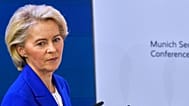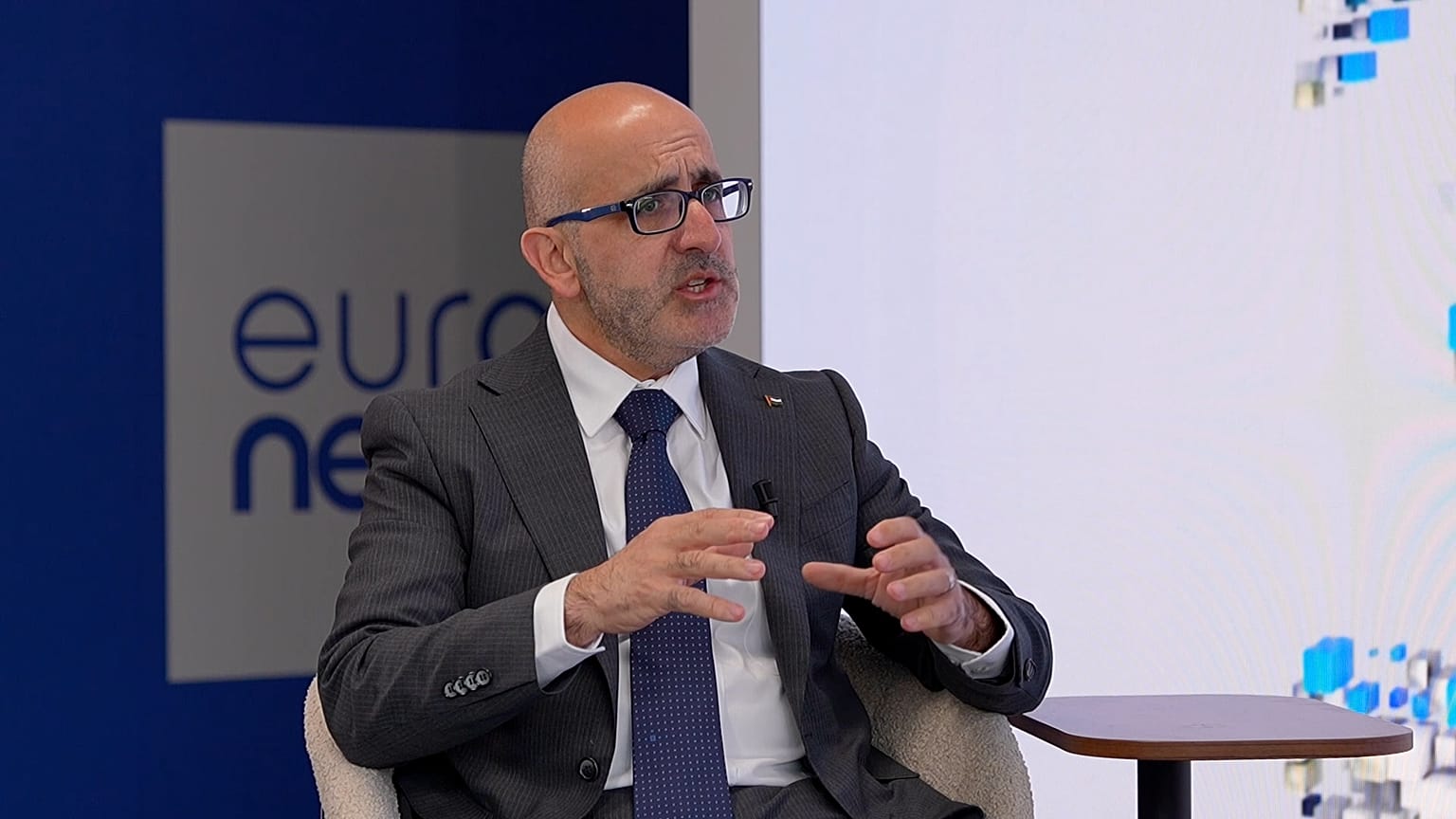Euronews spoke with Estephan Salameh, Palestinian Minister of Planning and International Cooperation, on the sidelines of the Palestine Donor Group conference in Brussels.
The EU has confirmed a financial contribution of €82 million to the Palestinian Authority (PA) to support stabilisation efforts in the West Bank, at the first meeting of the Palestine Donor Group in Brussels on Thursday.
 ADVERTISEMENT
ADVERTISEMENT
 ADVERTISEMENT
ADVERTISEMENT
"Our aim is to strengthen governance, build a more resilient economy, stabilise finances, improve services for the population, and create conditions for future effective governance across all territories", Dubravka Šuica, EU Commissioner for the Mediterranean said.
Although this money was already pledged, and no additional commitment was announced by the EU, the Palestinian minister of Planning and International Cooperation told Euronews that this renewed financial support is key to keep the Palestinian Authority afloat and provide basic services for the Palestinian people.
However, the minister says that the best way to strengthen the Palestinian Authority's financial situation would be the release of $4 billion (€3.5 billion) of tax revenues withheld by Israel.
Under the 1993 Oslo Accords, Israel collects taxes and customs duties imposed on goods imported into Palestinian territories, and is then supposed to transfer the funds to the Palestinian Authority.
"We haven't received our money from Israel for six consecutive month, and that money constitutes 68 percent of the Palestinian revenues. No country in the world can function without 68% of its revenues", Estephan Salameh, Palestinian Minister of Planning and International Cooperation said.
The 60 delegations attending the Palestine Donor Group meeting also stressed the need for the Palestinian Authority, which currently administers only parts of the West Bank, to pursue its fiscal, economic, governance, social and education reforms.
"We have what we call the reform matrix between us and the European Union. It is built around four main pillars and 53 actions or milestones", the minister explained.
"Out of the 53 milestones, we've achieved 21 of the key milestones, and then the rest are already scheduled to be implemented next year and in 2027", he added.
'Martyrs fund' in the spotlight
The conference took place at a sensitive time, following Israeli allegations that the Palestinian Authority Martyrs Fund was still operating through bypass channels and that EU funds had been used to finance this programme, which officially ended in February.
The Palestinian Authority Martyrs Fund was a programme aimed at providing financial support to families of Palestinians injured, killed or imprisoned by Israel. The scheme has been criticized as a "pay for slay" mechanism by Israel and the United States who believe it encourages and rewards attacks against Israel.
The Palestinian Authority denies these accusations.
"We never used EU funds to this category of our people, which is the families of prisoners and martyrs and injured", Salameh stressed.
"The EU has enough audits to discover that. Palestine is the most scrutinised country in the world, so it's not easy to misuse any of the funds. And we have no intention, of course, to do that", he claimed.
The minister said that since the passing of a new law, financial aid is now provided to the population based on 42 social-based criteria. Families of Palestinians injured, killed or imprisoned by Israel are also required to submit an application and will only receive a financial aid if they fit these social criteria, he said.
"We need to make sure that all segments of our society are also supported, because we don't want them to resort to violence. We don't want them to resort to radicalism. It is important to show them a different path, and that path comes with opportunities", he added.
Peace plan resolution 'a good step forward' with shortcomings
The Palestine Donor Group conference took place a few days after the adoption of a UN Security Council resolution endorsing a peace plan put forward by the United States - to which the EU didn't contribute - and authorizing an International Stabilization Force in Gaza.
The UN resolution approves US President Donald Trump's oversight of a transitional authority and foresees an upcoming path to an independent Palestinian state.
Estephan Salameh says that although this resolution is a good step forward as the priority is to stop the war, it comes short in a number of things.
"The reference to self-determination, to the two-state solution, to the establishment of the Palestinian state, is very lame. It's not strong, it's not very visible. It has no elements of accountability in it", he said.
"It's also not clear about the borders. It's also not clear about the transitional period. It's kind of like vague. So what laws are going to be applied in Gaza? Are they going to respect the property rights? (...) Who's going to provide the basic services to our people : water, electricity, health care, education ? Who's gonna issue passports?", he added.
The Palestine Donor Group conference can be seen as an EU attempt to have a say in the negotiations and the opportunity for the Palestinian Authority to stress that reconstruction and recovery efforts in Gaza should be led by the Palestinian Authority.
For now, the ceasefire remains fragile and Hamas refuses to disarm. The minister says that the PA's priority is to stop the war in the Gaza Strip and adds that Israel should open the borders to let humanitarian aid enter into the Strip.
The popularity of the Palestinian Authority has, however, been declining over the years. Only 29% of respondents were satisfied with the PA's performance during the war, according to a poll conducted by the Palestinian Center for Policy and Survey Research (PSR) in the West Bank and the Gaza Strip last month.














